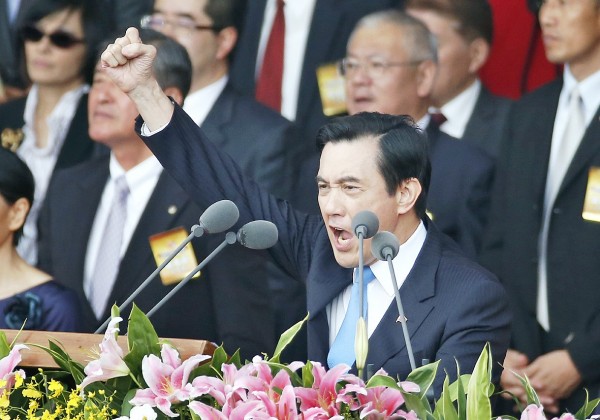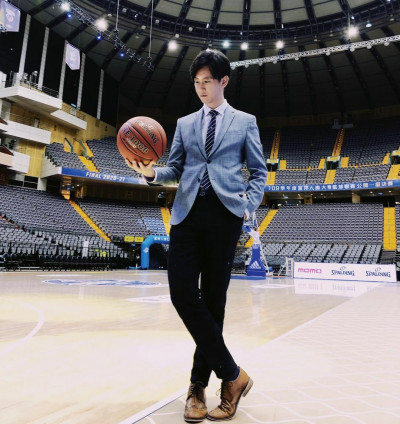《TAIPEI TIMES 焦點》 Ma focuses on relations with Beijing

President Ma Ying-jeou gestures during his speech at the National Day celebrations in Taipei, yesterday. Photo: AP
EYE ON LEGACY? Ma said he was ‘worried’ about the ability of his successor to maintain the ‘status quo’ in a remark widely seen as aimed at the DPP’s Tsai Ing-wen
By Abraham Gerber / Staff reporter
President Ma Ying-jeou (馬英九) in his final Double Ten National Day speech yesterday expressed concerns about the development of cross-strait relations, saying that any future president should continue to pursue a cross-strait policy based on the so-called “1992 consensus.”
“Without the ‘1992 consensus,’ the maintenance of the ‘status quo’ becomes an empty slogan; an unrealizable goal that does not advance the peaceful development of cross-strait ties,” Ma said in a speech to the crowd gathered in front of the Presidential Office Building in Taipei to celebrate the 104th birthday of the Republic of China (ROC).
The ceremony included military drills and dances involving hundreds of performers.
The “1992 consensus” refers to an agreement said to have been reached between the Chinese Nationalist Party (KMT) and Chinese Communist Party in 1992, stating that there is “one China” with both sides having “different interpretations” of what that means.
Ma also said in the speech that he was “worried” about whether his successor would be able to continue his policy of “maintaining the ‘status quo,’” adding that the “1992 consensus” was the most important pillar of that policy.
“Is it really that hard for a president of the ROC to accept the ‘1992 consensus’ — which was based on the ROC constitution?” he said, adding that whoever was elected as president would be obliged to swear to follow the Constitution.
Ma’s remarks were interpreted as being directed at Democratic Progressive Party presidential candidate Tsai Ing-wen (蔡英文), whose attendance at yesterday’s ceremony was a first for a DPP chairperson during Ma’s administration.
“I hope that this means that everyone, regardless of their party identifies with and supports the ROC,” Ma said, adding that the attendance of an opposition party leader at this year’s ceremony was “gratifying.”
He said that “maintaining the ‘status quo’” had already become a separate “Taiwan consensus” supported by the leaders of all major parties.
The existence of the “Taiwan consensus” demonstrated that his government’s cross-strait policy over the past seven years had become “mainstream public opinion” and did not aim to “favor China and sell out Taiwan” or “diminish national sovereignty,” he said.
Ma also hailed what he said were the domestic achievements of his administration over the past seven years, saying that he had overseen reductions in income inequality and crime, a strengthening of the social safety net, more investment in renewable energy and undertaken “hard work” on economic policy.
He added that his administration was “open-minded” about Chinese proposals to write sections of history textbooks concerning the Second Sino-Japanese War together.
新聞來源:TAIPEI TIMES












